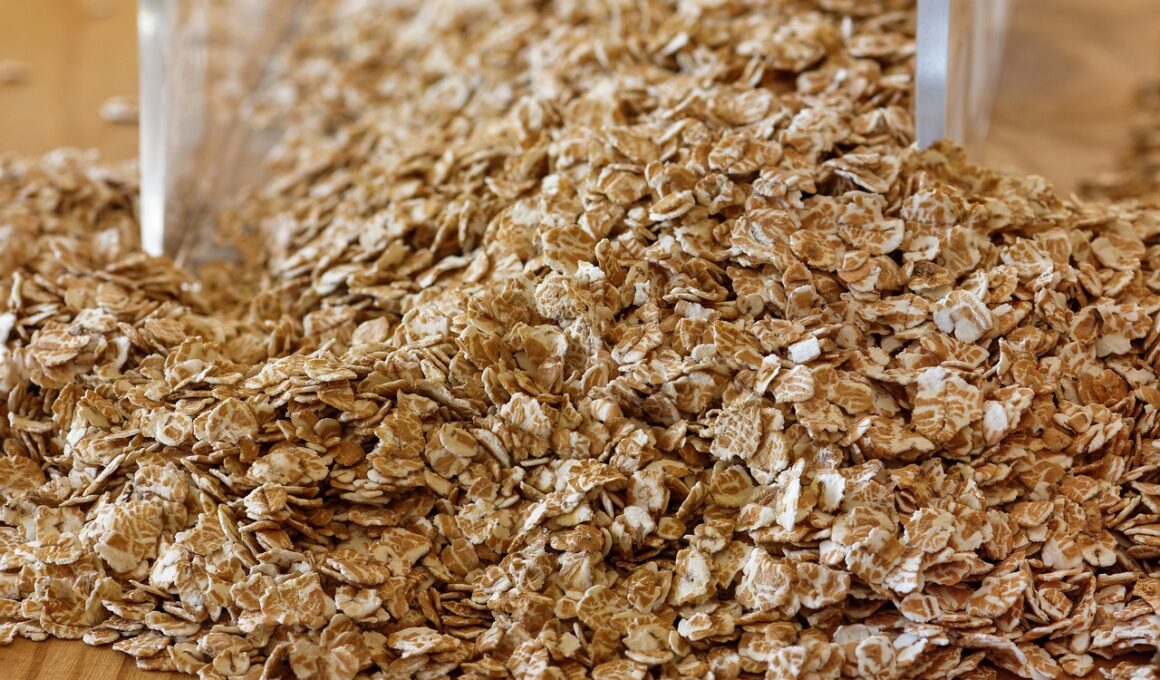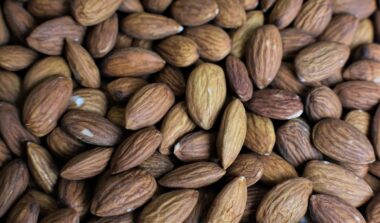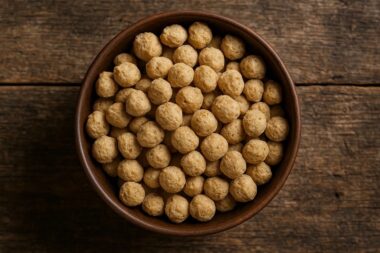Iron Absorption Tips for Vegan Endurance Athletes
Effective nutrition is paramount for vegan athletes, especially when it comes to iron absorption. Iron plays a crucial role in the transportation of oxygen throughout the body, which is essential for endurance sports. Unlike non-vegan athletes, vegan athletes often face challenges in meeting their iron requirements due to the absence of heme iron found in animal products. Plant-based sources contain non-heme iron that is less readily absorbed. Thus, it is vital to utilize strategies to enhance its absorption. One effective method is to pair iron-rich foods with vitamin C sources, such as bell peppers, citrus fruits, or strawberries. Doing so can significantly enhance iron uptake in the gut. Moreover, cooking with cast iron skillets can inadvertently increase the iron content in plant-based meals. Incorporating fermented foods can also boost the absorption of iron due to the presence of probiotics which improve gut health. It’s essential for vegan athletes to monitor their iron levels through regular blood tests to prevent deficiencies, which can detrimentally affect performance, energy levels, and overall recovery. Knowledge of these approaches can greatly assist in maintaining optimal iron levels.
Effective meal planning is critical to ensure that vegan athletes optimize their iron intake. It is essential to be aware of various high-iron plant-based foods, including lentils, chickpeas, beans, quinoa, and fortified cereals. Including a variety not only helps meet the daily recommended intake but also provides a balance of nutrients necessary for athletic performance. Dark leafy greens, such as spinach and kale, are also excellent choices but should be consumed in moderation due to their oxalate content, which can inhibit iron absorption. To further maximize iron intake, consider snacks made from roasted chickpeas or fortified granola bars. Another important factor is to limit the consumption of iron inhibitors, such as tea, coffee, and calcium-rich foods during meals that contain iron. These substances can compete with iron for absorption in the gut. Spacing out these iron-rich meals from iron inhibitors is vital. Lastly, a well-balanced diet rich in whole grains, fruits, and vegetables fortifies overall nutrition, ensuring that vegan endurance athletes meet their iron needs without sacrificing other essential nutrients crucial in supporting rigorous training.
Importance of Timing and Meal Composition
Timing and meal composition are crucial for maximizing iron absorption in vegan athletes. Consuming iron-rich meals at strategic times can greatly influence total absorption. For instance, post-workout meals should prioritize protein and carbohydrate replenishment along with iron. Incorporating foods like lentil salads with quinoa, paired with a citrus dressing, can provide not only protein for recovery but also enhance iron intake. Additionally, spreading iron intake throughout the day rather than consuming it all in one meal allows for better absorption. When meal compositions are planned, balancing macronutrients while prioritizing iron-rich foods can help sustain energy levels and prevent fatigue. Incorporating diverse food groups at each meal ensures a broad spectrum of nutrients and supports optimal body functioning. Combining protein sources like tofu or tempeh with grains and vegetables creates a complete amino acid profile while optimizing iron absorption. Moreover, targeting nutrient timing can maximize performance and recovery for vegan endurance athletes. Hydration paired with meal composition, in line with iron intake, will work together cohesively to maximize training effects and recovery, supporting long-term athletic goals.
It is also crucial for vegan endurance athletes to consider supplementation when dietary sources may not meet their iron needs. Iron supplements can be beneficial, but they should only be taken after consulting a healthcare professional, as excessive iron intake can lead to toxicity. A common recommendation is to use a ferrous bisglycinate supplement, known for better absorption and less gastrointestinal discomfort compared to traditional iron supplements. Best practice includes tracking rich food sources and identifying patterns in dietary intake while monitoring symptoms of potential iron deficiency, such as fatigue and dizziness. Regular blood tests can ensure that iron levels remain within a healthy range, providing guidance for supplementation needs. Encouragement for athletes to educate themselves on individual nutritional requirements cannot be overstated in the pursuit of excellence. Raising awareness about the signs of deficiency and promoting discussions between athletes, dietitians, and healthcare providers fosters a holistic approach to nutrition. This proactive attitude toward iron status ultimately supports sustained energy, enhanced endurance, and overall athletic performance for vegan endurance athletes, ensuring that they remain competitive in their sports.
Educational Resources and Support
Vegan athletes may benefit from various educational resources and support systems designed to guide them in achieving optimal nutrition, with a particular focus on iron absorption. Local vegan or vegetarian associations often provide access to workshops around nutrition, cooking demonstrations, and credible dietary guidance specifically for athletes. Online platforms and communities focused on veganism in sports can serve as repositories of knowledge, offering forums for discussion, recipe sharing, and personal experiences that lend support. Books written by nutritionists with expertise in vegan diets are also instrumental in expanding an athlete’s understanding of essential nutrients. Other resources include mobile apps that track nutrient intake, allowing athletes to ensure they meet their iron targets daily. Moreover, consulting with registered dietitians who specialize in sports nutrition can further assist athletes in creating tailored meal plans that address iron needs. Peer support among fellow vegan athletes fosters accountability and motivation while navigating dietary challenges, leading to improved health and athletic performance. Having knowledge from various resources ensures that athletes have multifaceted support networks that empower their journey in balancing veganism with peak athletic performance.
As veganism continues to gain popularity in the athletic community, understanding the nuances surrounding iron absorption is vital. Endurance athletes following a vegan diet must prioritize monitoring their iron levels to prevent potential deficiencies, which can affect performance. Beyond focusing solely on iron-rich foods, it is essential to create a holistic nutrition plan that supports overall health. This includes ensuring adequate intake of other minerals and vitamins, like magnesium, zinc, and B12, which have beneficial roles in various physiological functions. Emphasizing whole foods, nutrient density, and smart food pairings will yield better iron absorption. Educating teammates and fellow athletes can further amplify awareness of the significance of proper nutrition in performance. Plant-based athletes should be encouraged to regularly share findings from their own experiences about effective nutrient strategies. Taking an active role in advocating for vegan diets can instigate conversations and promote interest within the greater athletic community. By doing so, the stigma around veganism in endurance sports is reduced. This movement of awareness serves to empower and elevate the discourse surrounding vegan nutrition, increasing accessibility and understanding among athletes at all levels.
Conclusion
In summary, optimizing iron absorption for vegan endurance athletes is crucial to maintaining peak performance and overall health. Through strategic meal planning, education, and potential supplementation, vegan athletes can effectively enhance their iron status. Utilizing proper food combinations to boost absorption, spreading iron intake throughout the day, and being conscious of inhibitors play a significant role in achieving nutritional goals. Awareness of dietary requirements fosters accountability and responsibility in managing health outcomes. Regular consultations with nutrition experts, along with tracking progress using educational resources, cultivates a more profound understanding of one’s dietary needs. As athletes share their experiences and knowledge, the collective growth of the vegan athletic community will further expand in embracing plant-based diets without compromising performance. This dedication to nutrition transcends individual achievement, weaving a strong narrative around the benefits of veganism in sports. With continued research and discussion, the future of vegan athletes looks bright, paving the way for a new era where dietary choices enhance performance, while also promoting sustainability and health.





